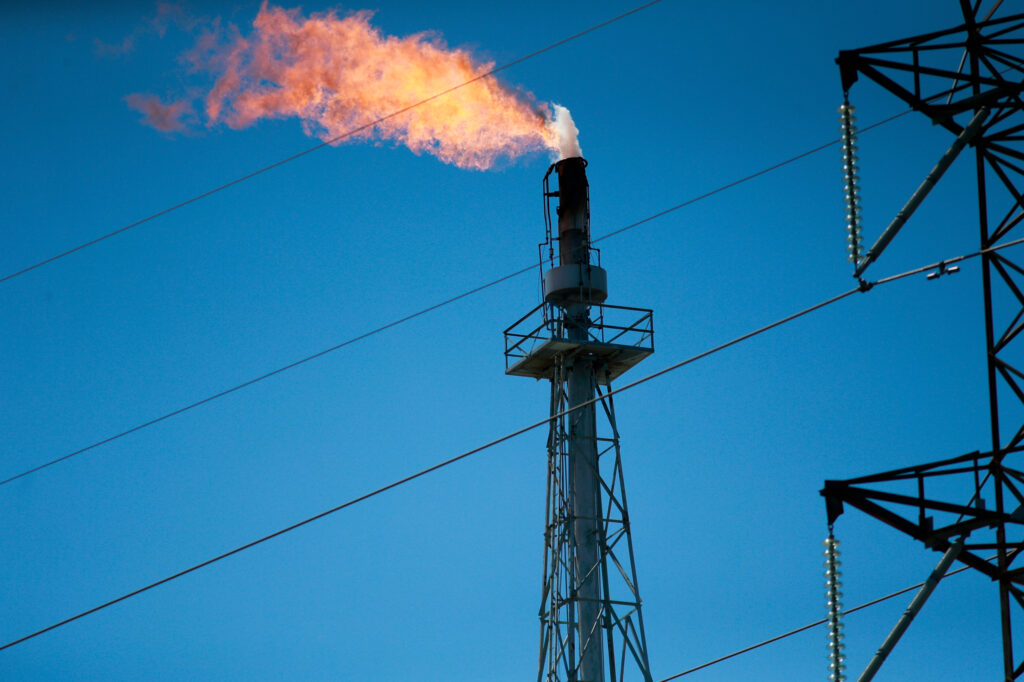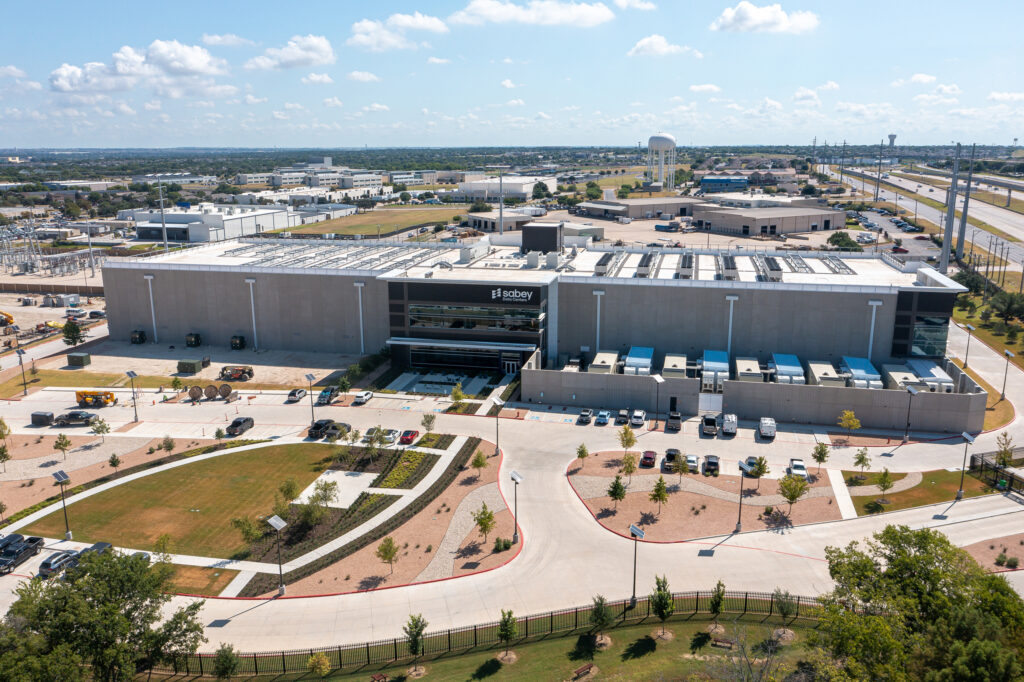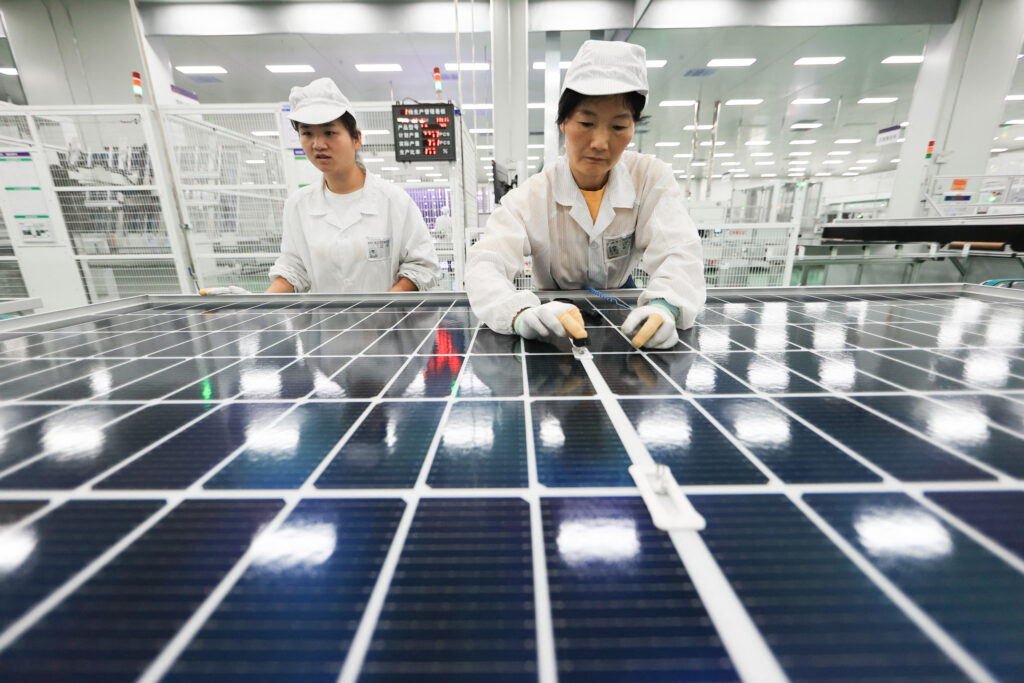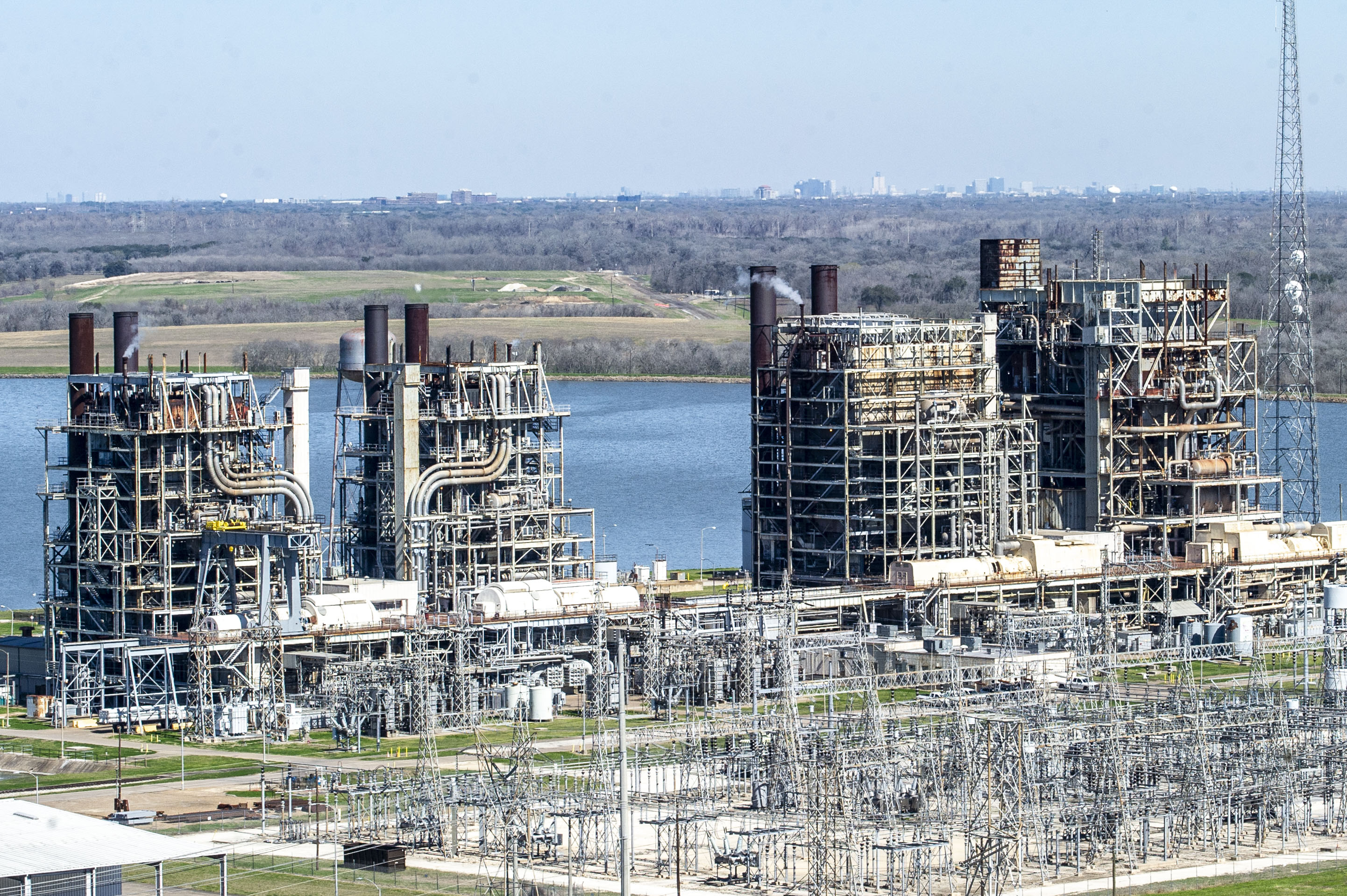In a year of record-setting heat, intensifying extreme weather and a bitterly partisan presidential election in which climate change was almost never mentioned, the transition away from fossil fuels made significant progress that was still not nearly enough.
It was that kind of year.
Right now, the election feels like the most significant of those developments, with the potential to stall or reverse the gains of the last few years. President-elect Donald Trump has promised to exit the Paris climate accord for the second time and his nominee for energy secretary has argued that there is a moral case for fossil fuels.
But we won’t know for a while what factors will matter the most in the long run, as leading climate scientists warn that “we are still moving in the wrong direction; fossil fuel emissions have increased to an all-time high” and “the 3 hottest days ever occurred in July of 2024.”
Here are highlights of the year as it unfolded through the lens of Inside Climate News’ reporting on science, technology, politics and activism:
January
By January—the warmest on record—the U.S. presidential election was in full swing. President Joe Biden was running without serious opposition in the Democratic primary, while former President Donald Trump campaigned in a Republican field that included former U.N. Ambassador Nikki Haley among others. Interest groups also prepared to influence the race, with the American Petroleum Institute saying it would campaign hard against Biden’s re-election and make the case for expanded U.S. fossil fuel production and exports.

Across the country, people fought for environmental justice, as in Clairton, Pennsylvania, where residents worked to get the owners of a coke plant to take responsibility for the long-term harm it has done to local air, as Kiley Bense reported.
Katie Surma and Nicholas Kusnetz began their yearlong examination of a legal system known as investor state dispute settlement, or ISDS. The system allows companies to bypass national courts and extract huge sums of money from developing countries. The result is a disincentive for countries to phase out fossil fuels because of the possibility of facing multi-billion dollar claims from oil and gas companies.
February
Winter was unusually warm, with February setting a new record for warmth globally and in North America. High temperatures led to the cancellation of activities that depend on the cold. For example, an annual art event in Minneapolis closed early because of melting ice. Also, ski areas had to adapt to the warmth, relying heavily on snowmaking machines.
A United Nations-backed report showed a crisis in biodiversity, with about half of internationally protected migratory species in danger of extinction. This is the latest of many studies showing that human activity is doing tremendous harm to ecosystems that many animals depend upon.
Texas regulators decided it was OK to build an oil and gas waste recycling facility next to a Baptist camp. The decision by the Texas Railroad Commission was in spite of concerns about how water and air pollution may affect campers.






Activists for the youth-led Sunrise Movement got arrested protesting at Biden’s campaign headquarters in Wilmington, Delaware, as Keerti Gopal reported. The group’s leaders said Biden would lose the votes of young people without decisive action on climate change and a ceasefire in the war between Israel and Hamas. The protest underscored Biden’s difficulty uniting the coalition that had helped him to win in 2020.
March
The Biden administration finalized rules on tailpipe and power plant emissions, and on disclosure of corporate climate risk. The three rules represent progress, but were less stringent than the administration had been considering earlier in the drafting process. White House officials ended up pulling back on some of the most ambitious changes in response to concerns from labor and industry groups, and from Democrats who viewed themselves as vulnerable in the upcoming election.
A house in Alabama exploded, and the residents blamed the disaster on a buildup of methane in a mine beneath the property, as reported by Lee Hedgepeth and James Bruggers. This was part of a long-term reporting project on the hazards of longwall mining.




Great River Energy, a power provider to rural electric cooperative utilities in Minnesota, announced it was deploying so-called “magic balls” to be placed on interstate power lines. The technology, which is still in its early stages of use in this country, measures heat on the lines. A grid operator views the heat level and can determine how much more electricity a line is capable of handling. The result is that lines can carry more power than they otherwise would, improving efficiency and reliability.
Conservationists have turned to carbon credits to try to preserve forests in Belize, as Nicholas Kusnetz reported. While carbon credits have a track record of not delivering on promises to preserve ecosystems and reduce emissions, Belizeans behind the projects say they couldn’t protect the land without revenue from selling credits. In this case, conservation efforts have faced criticism from local farmers and nearby Indigenous communities.


April
Much of the United States paused on April 8 for a solar eclipse and ICN covered it across the country as people stopped to look in awe. A lack of cloud cover meant the eclipse was viewable in many places, but accelerating climate change may make it more difficult to predict the weather for people who plan to travel to see things like the eclipse.
Globally, the month was the warmest on record—and the 11th straight warmest month on the planet.




Florida Gov. Ron DeSantis signed a bill that bans heat protections for outdoor workers, a measure that opponents said was cruel and inhumane. Now, Florida’s local governments cannot pass ordinances requiring that companies take steps to protect workers from dangerous heat while working outdoors, a hazard as summers continue to get hotter, as Amy Green and Victoria St. Martin reported after the bill passed the legislature.
The Biden administration issued plans for how it would allocate $7 billion in funding for the Solar for All program, an initiative that is part of the Inflation Reduction Act that aims to facilitate the installation of solar power for the benefit of 1 million low-income and otherwise disadvantaged households. Most of the money flows through community nonprofits that are now able to operate on a scale much larger than before.
May
Members of the Colorado River Indian Tribes watched as state, federal and tribal officials signed an agreement that asserts the tribes’ right to lease some of their allocation of the river’s water to farmers and other users who are not on tribal land. This historic accord will help to raise money for tribal infrastructure and could assist in dealing with drought in the Southwest, as Noel Lyn Smith reported.


Negotiations on a United Nations plastics treaty showed some promise in the spring. All along, the U.S. government and oil companies have been obstacles to reaching a broad agreement to put caps on plastic production.
Maryland Gov. Wes Moore signed a measure that brings new consumer protections to the state’s consumer market for natural gas and electricity contracts. The bill seeks to rein in an industry whose excesses have been thoroughly covered by Aman Azar, including a story about how the measure is viewed as a huge win for consumer advocates who have long raised concerns about companies that use misleading messages to sell the contracts.




The Rio Grande delta in Texas is mostly wilderness, but oil and gas companies would like to develop the area in a way that might make it look like the state’s other major inlets on the Gulf Coast, with refineries and chemical plants. Juan Benito Mancias, chairman of the Carrizo/Comecrudo Tribe of Texas, is fighting against this encroachment in an area where his people have lived for 500 years.
June
Mexico elected a climate scientist as president, but it wasn’t clear how much Claudia Sheinbaum’s professional background would affect her policymaking. Scheinbaum won in a campaign where she talked about the need to develop renewable energy while also remaining committed to oil and gas.
A gas utility company and climate advocates teamed up to build a geothermal heating and cooling system to serve the Boston suburb of Framingham. The system went online with connections for 31 residential buildings and five commercial buildings, demonstrating a replicable way to do heating and cooling without fossil fuels.


Solar panel prices were way down, which was good news for people buying panels and less good for people selling them. The long-term decrease in solar panel prices has been a major driver of the shift away from fossil fuels, so it was concerning when prices rose coming out of the Covid-19 pandemic in 2020. Analysts said the price hikes wouldn’t last long, which turned out to be correct.
July
Heat records fell throughout the year, globally and at just about every level you could measure. Underscoring the persistence of this pattern, researchers reported global temperatures had breached an important barrier: The average global temperature had warmed at least 1.5 degrees Celsius above pre-industrial levels for 12 consecutive months.
Scientists are worried that they can’t explain all of the recent global warming acceleration with factors like the El Niño warm phase in the tropical Pacific Ocean. But part of the warming spike could be attributed to a decline of reflective low-altitude cloud cover over some ocean areas, described as part of a dangerous climate feedback loop in a paper issued later in the year.


U.S. electric vehicles sales rose by 7.3 percent in the first half of the year compared to the same period in the prior year, according to Cox Automotive. While sales grew, the rate of growth was less than before, which contributed to talk that the EV market was losing momentum. The reality was more complicated, as automakers such as Ford and Kia had large increases in sales, while the leader, Tesla, was down.
Warming waters have contributed to the growth of algae blooms, which lead to concerns about public health. Algae in the Chesapeake Bay region led officials to advise that residents in Washington, D.C., and parts of Virginia boil their water before using it. The incident occurred on the eve of July 4, raising concerns it could disrupt emergency water needs during the fireworks. Officials said it required coordination between federal and local agencies to restore water flow from another D.C. aquifer.


The Rapidan Dam near Mankato, Minnesota, got national attention when its partial breach led to the destruction of a house and the need to demolish a nearby store. Kristoffer Tigue reported on how climate change puts the nation’s aging dams at even greater risk.
Donald Trump steamrolled his competition on the way to becoming the GOP’s presumptive nominee for president, and then he survived an assassination attempt while speaking at an outdoor rally in Pennsylvania. Marianne Lavelle looked at the legacy from Trump’s first term, including rollbacks of environmental rules and the way he inspired other populist leaders.




As Trump rose in the campaign, President Joe Biden fell. Facing poor poll numbers and a lack of enthusiasm from Democrats, he dropped out of the presidential race and endorsed his vice president, Kamala Harris. Harris showed early signs of building excitement among groups that typically support Democrats, including climate activists. An example was how she won the endorsement of the Green New Deal Network within about a week of campaigning, something that had eluded Biden.
August
Arizona has an almost complete lack of restrictions on water use by mines. This could be a problem in a part of rural Arizona where a proposed copper mine would use a lot of the area’s scarce water resources, as Wyatt Myskow reported.


Hurricane Debby struck Florida, Georgia and the Carolinas. The slow-moving storm was concerning for scientists and government officials because of the way it seemed to stall over land and dump water. Scientists have been trying to determine how climate change may be intensifying storms, and this one looked like a good example of the kind of storm that could become more common.
Industry-funded consultants for chemical companies have a track record of publishing research that downplays the safety risks of chemicals. The U.S. Environmental Protection Agency has used this research in its regulatory decisions, even when there is credible evidence in the same proceedings that the chemicals cause cancer, as Liza Gross reported.


One of the most concerning studies on climate change in 2024 showed a surge in methane emissions that could be a signal of a major climate shift. The findings indicated that global warming increases natural methane releases, which then help to accelerate warming. Methane, which is the main component of natural gas, is a potent greenhouse gas.
The potential for runaway environmental harm exists side-by-side with technological innovations that fuel hope. Some of the greatest advances in recent years have been in battery technology, and there are much more substantial gains just over the horizon with solid-state batteries, as Dan Gearino reported. These batteries, which use a solid electrolyte instead of liquids or gels, hold the promise for safer systems that pack much more power into each unit of volume.


September
Kamala Harris’ presidential campaign gained momentum with her performance in her only debate against Donald Trump. But one of the nagging questions with her campaign was whether she could sustain excitement from young voters to get them to the polls.
Hurricane Helene devastated parts of the Southeast in late September, taking 230 lives to become the deadliest hurricane to hit the U.S. since Katrina 19 years ago. The storm showed the growing threat of inland flooding far from the coastal areas that are more accustomed to dealing with this kind of severe weather.




One of the many unwelcome changes in weather patterns was an increasing frequency of tornadoes in the eastern states such as Pennsylvania. Scientists are trying to figure out if this is tied to climate change.
The unusually dry summer led to many problems, including low water levels that disrupted the routes of barges that carry food and grain. The Mississippi River was one of several major rivers with low waters, and scientists warned that these kinds of disruptions are likely to become more common because of climate change. For consumers, the result is higher prices for goods that need to be shipped using more expensive methods.




Lisa Sorg spent much of the year looking at the proposals for massive investments in fossil fuel infrastructure in North Carolina, part of a series called Gaslighting. The first story explained the scale of the proposed construction and how environmental advocates are preparing for a long fight.
Climate Week in New York included lots of the usual events from corporations and nonprofits, but Katie Surma covered an emotional hearing that highlighted the challenges of people and ecosystems around the world living near fossil fuel projects.
This story is funded by readers like you.
Our nonprofit newsroom provides award-winning climate coverage free of charge and advertising. We rely on donations from readers like you to keep going. Please donate now to support our work.
Donate Now
October
As an extremely hot summer turned into fall, monarch butterflies were among the species struggling to deal with the effects of heat on their habitat. Recent research points to the connection between heat and rising risks to monarch populations.
Hurricane Milton was the latest in a line of devastating storms, coming just two weeks after Helene. Milton did severe damage, but it was much less than officials had feared in the days and hours before landfall near Siesta Key, Florida. One troubling aspect was high winds, including tornadoes, which add to concerns that climate change may affect the severity of storms.
Right whales continued to get injured and die because of entanglement with ropes that attach to lobster traps. Technology may offer a solution in the form of ropeless traps, which could be good for whales and for lobstermen, as Kiley Price reported from waters off of Massachusetts. One of the main challenges was skepticism from lobstermen who were leery of systems such as inflatable or pop-up buoys.






Plant Miller, a gigantic coal-fired power plant in Alabama, was at the top of a list of the country’s largest emitters of greenhouse gases. It wasn’t a surprise, considering the plant has held this distinction for nine years in a row, as Dennis Pillion reported.
The Rio Grande River is barely a trickle in much of West Texas, but scientists and environmental advocates say there are ways to increase the flow for the benefit of local residents and ecosystems. Martha Pskowski took a close look at the problem, including in the frequently dry stretch of the river called the “Forgotten Reach.”


On a reporting trip to Mexico City, Marianne Lavelle observed how the Chinese automaker BYD had made major inroads in that market and was a major threat to U.S. automakers even though tariffs have stopped Chinese companies from selling cars north of the border. The story, published shortly before the U.S. presidential election, showed the stakes in that contest for the auto industry. Democrats have favored substantial investment to build manufacturing and sales of electric vehicles, while Republicans often oppose such policies, likely placing U.S. automakers at a disadvantage in global competition. This was the final installment of Politically Charged, a series by Lavelle and Dan Gearino about the politics of EVs.
November
Donald Trump defeated Kamala Harris in the Nov. 5 election for U.S. president, a pivotal moment for the country’s and the world’s climate policy. Trump campaigned on promises to undo aspects of Joe Biden’s support for renewable energy and EVs, and to support an increase in oil and gas production. He also has been an opponent of the United States being part of global efforts to address climate change.
Trump named Lee Zeldin to head the Environmental Protection Agency, a move that environmental advocates fear will contribute to a gutting of the agency. But some noted that Zeldin, a former Congressman from New York, had a voting record that included some pro-environment stances, which makes him potentially better than some of the other people Trump may have been considering.




Kazakhstan has built a local beef industry that aims to have net-zero emissions. Georgina Gustin reported on how a North Dakota farmer helped bring cattle ranching to this part of Central Asia, and how there are many challenges to net-zero beef production, including difficulty in measuring and certifying whether systems are doing much good. The larger reality is that the beef industry is a major source of emissions, and one of the only plausible ways to address the problem is to eat less beef.
COP29 ended in disappointment for those hoping for substantial progress on nations’ commitments to reduce emissions. The conference took place in Azerbaijan and concluded with wealthy nations committing to spend $300 billion per year by 2035 to help developing countries, an increase from the current $100 billion per year. The increase may look like a step in the right direction, but it remains far short of what’s needed and pales in comparison to how much oil-producing countries spend to subsidize fossil fuels, as Bob Berwyn reported.


But some encouraging agreements emerged from COP29. ClimeCo, a global sustainability company based in Pennsylvania, announced agreements with four Chinese chemical companies to eliminate nearly all emissions of nitrous oxide, a potent greenhouse gas, from the companies’ plants. Phil McKenna explained the significance of this action for human health, and how it came together.
December
A rise in avian flu cases in cattle raised fears of a potentially devastating spillover into humans. Consolidation of the livestock industry has increased the dangers because of how viruses can spread across gigantic cattle herds in a way that would be less of a concern with smaller herds.




Teresa Tomassoni covers oceans, which included a story about one woman’s push to save coral genetics in Turks and Caicos to allow for the rebuilding of reefs in the future. Alizee Zimmermann built a living biobank to hold corals on land at a time when high ocean temperatures are harming reefs.
At a Navajo summit in New Mexico, participants shared their approaches to traditional foods. Unfortunately, this is also a climate change story, as shifts in ecosystems have led to a decline in the availability of ingredients in some staple foods. People at the summit hoped to preserve recipes and legacies.
Dormant uranium mines are coming back online in South Texas, part of what government and industry leaders hope will be a new era of growth for nuclear power. But it’s far from clear whether a boom in mining will have the necessary safeguards to avoid contamination of drinking water, as Dylan Baddour reported.


And in the week before Christmas, the Biden administration announced it was racing ahead of other countries and amping up the United States’ goal for the next phase of the Paris climate accord, pledging to reduce net carbon emissions by 61 to 66 percent below 2005 levels by 2035, as Marianne Lavelle and Phil McKenna reported.
They wrote that the new goal was a “dead letter,” given the incoming president’s pledge to again take the U.S. out of the Paris process. Nevertheless, the White House and some academics argue that state and local governments and businesses can keep the U.S. goal alive.
About This Story
Perhaps you noticed: This story, like all the news we publish, is free to read. That’s because Inside Climate News is a 501c3 nonprofit organization. We do not charge a subscription fee, lock our news behind a paywall, or clutter our website with ads. We make our news on climate and the environment freely available to you and anyone who wants it.
That’s not all. We also share our news for free with scores of other media organizations around the country. Many of them can’t afford to do environmental journalism of their own. We’ve built bureaus from coast to coast to report local stories, collaborate with local newsrooms and co-publish articles so that this vital work is shared as widely as possible.
Two of us launched ICN in 2007. Six years later we earned a Pulitzer Prize for National Reporting, and now we run the oldest and largest dedicated climate newsroom in the nation. We tell the story in all its complexity. We hold polluters accountable. We expose environmental injustice. We debunk misinformation. We scrutinize solutions and inspire action.
Donations from readers like you fund every aspect of what we do. If you don’t already, will you support our ongoing work, our reporting on the biggest crisis facing our planet, and help us reach even more readers in more places?
Please take a moment to make a tax-deductible donation. Every one of them makes a difference.
Thank you,

















